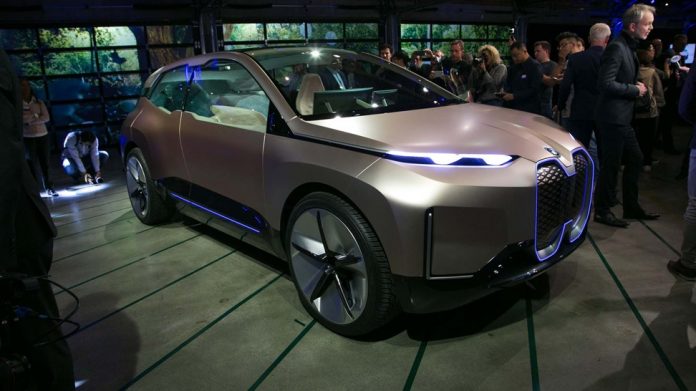- The market for autonomous vehicles is expected to grow to $96bn in 2025 and $290bn in 2035
FRANKFURT: Daimler and BMW deepened their alliance on Thursday to share spiraling development costs for highly automated driving technologies, even as each carmaker pursues separate efforts to develop fully self-driving cars.
The enormous cost of designing and building computer-powered vehicles has already prompted Honda to pool its efforts with General Motors, while Volkswagen is pursuing talks with Ford about an alliance on autonomous cars.
BMW and Daimler deepened their alliance for similar reasons, said Michael Hafner, head of automated driving at Mercedes-Benz research and development said in a blog post which accompanied a joint press release by the companies on Thursday.
“We have learned that the development of these systems is a bit like climbing a mountain,” he said. “Taking the first few meters from the base station to the summit seems easy. But the closer you come to the goal, the thinner the air around you becomes, the more strength is required for each further step, and the more complex become the challenges you have to resolve.”
It made sense to distribute the technological and financial challenges of automated driving, Hafner said, so BMW and Daimler will jointly develop technology to enable automated driving on highways.
POTENTIAL GROWTH
“Initially, the focus will be on advancing the development of next-generation technologies for driver assistance systems, automated driving on highways and parking features,” the companies said in the statement. “In addition, the two partners plan to discuss the possibility of extending their collaboration to cover higher levels of automation, both on highways and in urban areas.”
BMW and Daimler’s move comes as even deep-pocketed technology companies struggle to gain traction in autonomous driving. Apple Inc said on Wednesday it planned to lay off 190 employees in its self-driving car program, Project Titan.
The market for advanced driver assistance systems and autonomous vehicles is expected to grow to $96 billion in 2025 and $290 billion in 2035 from about $3 billion in 2015, according to Goldman Sachs.
BMW and Daimler already cooperate in high-definition mapping with HERE and in the area of procurement, and earlier this month unveiled a joint ride-hailing, parking and electric car charging business.
They said on Thursday their new partnership will center on so-called level 3 and level 4 automated driving technologies, including cars that still require steering wheels and drivers.
Daimler will pursue a separate development alliance for level 5 robotaxis between its luxury brand Mercedes-Benz and supplier Robert Bosch. Level 5 cars require no driver.
BMW, for its part, continues its development alliance for robotaxis with Israeli autonomous vehicle tech company Mobileye and chip maker Intel, with the aim of putting autonomous cars on the road by 2021.




